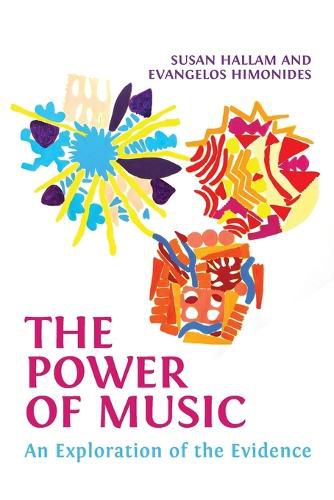Readings Newsletter
Become a Readings Member to make your shopping experience even easier.
Sign in or sign up for free!
You’re not far away from qualifying for FREE standard shipping within Australia
You’ve qualified for FREE standard shipping within Australia
The cart is loading…






This title is printed to order. This book may have been self-published. If so, we cannot guarantee the quality of the content. In the main most books will have gone through the editing process however some may not. We therefore suggest that you be aware of this before ordering this book. If in doubt check either the author or publisher’s details as we are unable to accept any returns unless they are faulty. Please contact us if you have any questions.
Building on her earlier work, The Power of Music: A Research Synthesis of the Impact of Actively Making Music on the Intellectual, Social and Personal Development of Children and Young People, this volume by Susan Hallam and Evangelos Himonides is an important new resource in the field of music education, practice, and psychology.
A well signposted text with helpful subheadings, The Power of Music: An Exploration of the Evidence gathers and synthesises research in neuroscience, psychology, and education to develop our understanding of the effects of listening to and actively making music. Its chapters address music’s relationship with literacy and numeracy, transferable skills, its impact on social cohesion and personal wellbeing, as well as the roles that music plays in our everyday lives. Considering evidence from large population samples to individual case studies and across age groups, the authors also pose important methodological questions to the research community. The Power of Music defends qualitative research against a requirement for randomised control trials that can obscure the diverse and often fraught contexts in which people of all ages and backgrounds are exposed to, and engage with, music.
This magnificent and comprehensive volume allows the evidence about the power of music to speak for itself, thus providing an essential directory for those researching music education and its social, personal, and cognitive impact across human ages and experiences.
$9.00 standard shipping within Australia
FREE standard shipping within Australia for orders over $100.00
Express & International shipping calculated at checkout
This title is printed to order. This book may have been self-published. If so, we cannot guarantee the quality of the content. In the main most books will have gone through the editing process however some may not. We therefore suggest that you be aware of this before ordering this book. If in doubt check either the author or publisher’s details as we are unable to accept any returns unless they are faulty. Please contact us if you have any questions.
Building on her earlier work, The Power of Music: A Research Synthesis of the Impact of Actively Making Music on the Intellectual, Social and Personal Development of Children and Young People, this volume by Susan Hallam and Evangelos Himonides is an important new resource in the field of music education, practice, and psychology.
A well signposted text with helpful subheadings, The Power of Music: An Exploration of the Evidence gathers and synthesises research in neuroscience, psychology, and education to develop our understanding of the effects of listening to and actively making music. Its chapters address music’s relationship with literacy and numeracy, transferable skills, its impact on social cohesion and personal wellbeing, as well as the roles that music plays in our everyday lives. Considering evidence from large population samples to individual case studies and across age groups, the authors also pose important methodological questions to the research community. The Power of Music defends qualitative research against a requirement for randomised control trials that can obscure the diverse and often fraught contexts in which people of all ages and backgrounds are exposed to, and engage with, music.
This magnificent and comprehensive volume allows the evidence about the power of music to speak for itself, thus providing an essential directory for those researching music education and its social, personal, and cognitive impact across human ages and experiences.